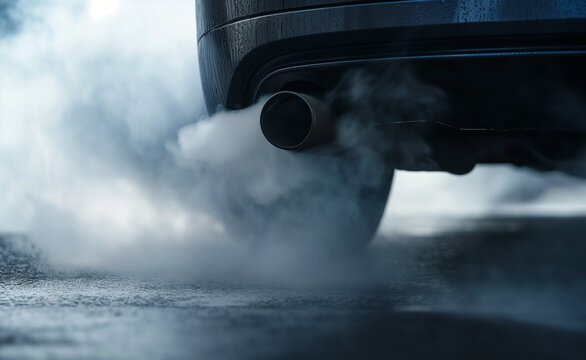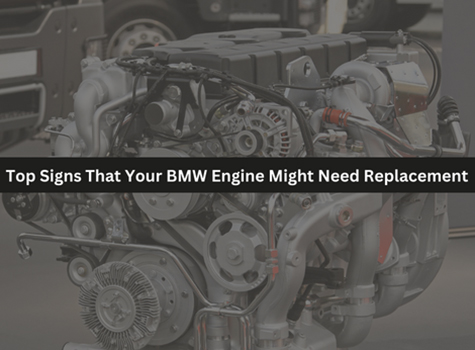Top Signs That Your BMW Engine Might Need Replacement
Key Signs Your BMW Engine Needs Replacement
When it comes to maintaining your BMW, the engine is the heart of your car and its performance is critical for a smooth, enjoyable driving experience. Identifying potential problems early can save you a great deal of time and money. In this post, we explore the top signs that may indicate your BMW engine needs to be replaced. We’ll guide you through various symptoms to watch out for so you can address issues before they escalate into major repairs.
One key sign of trouble could be the need for a frequent BMW engine replacement, which points to underlying issues that are too costly to repair effectively. Recognising these signs early can help maintain your car’s performance and extend its lifespan.
From warning lights to strange noises, understanding these signs can help you make informed decisions about engine maintenance. This knowledge is essential for any BMW owner who wants to keep their vehicle in top condition.
Check Engine Light Woes

The check engine light is a primary indicator that something might be wrong with your BMW. If this light illuminates, it’s crucial to get your car checked by a professional immediately. The engine management system has detected a fault that could range from minor issues to serious problems that might require a complete engine replacement.
Sometimes, the check engine light could flash intermittently. This flashing is a serious warning that there is a critical error needing immediate attention to prevent engine damage. It is often associated with misfires that can severely damage the engine’s components if not addressed quickly.
Ignoring the check engine light can lead to increased fuel consumption, lower performance, and potentially a complete engine failure. Regular diagnostics and maintenance are required to ensure that minor issues can be caught and resolved before they become major.
Strange Engine Noises
Unusual noises from your BMW’s engine are not to be ignored. These sounds could be indicative of various engine issues that might require replacement. A knocking noise often means that the engine’s internal components are wearing out.
Another alarming sound is a tapping or popping noise. This could indicate a problem with the valves or pistons, which are integral parts of the engine’s operation. Such issues can escalate quickly and may warrant a full engine replacement if not dealt with promptly.
Lastly, a grinding noise could also be a tell-tale sign that your BMW’s engine bearings are damaged. These bearings are crucial as they support the moving parts of the engine. When they wear out, the damage can be severe enough to require a new engine.
Burning Oil Excessively
If your BMW starts to consume oil excessively, this is a red flag that the engine might be failing. This condition not only affects the car’s performance but also impacts the environment due to increased emissions.
An engine that burns oil will typically produce blue smoke from the exhaust. This is due to oil leaking into the combustion chamber and burning along with the fuel. If you notice this symptom, it’s important to consult with a mechanic who can diagnose and resolve the issue as soon as possible.
Moreover, excessive oil consumption can lead to other engine problems, such as a build-up of carbon deposits. These deposits can cause further wear and tear, potentially leading to a situation where engine replacement is the most viable option.
Power Loss and Performance Drop
A noticeable decline in your BMW’s power and performance is a sign that there may be significant issues with the engine. This could manifest as the car struggling to accelerate or failing to maintain high speeds as easily as it once did.
This loss of power could be due to a variety of engine problems, such as worn-out spark plugs or a clogged fuel filter. These issues prevent the engine from producing its maximum power and, therefore, diminish your driving experience.
Additionally, a decrease in performance might also suggest more severe problems like a failing turbocharger or issues with the engine’s internal components. In such cases, replacing the engine might become necessary to restore the car’s performance.
Smoke Signals from the Exhaust

Smoke coming from your BMW’s exhaust can indicate several engine problems. Different smoke colours suggest different issues. For instance, blue smoke means that oil is burning within the engine, while white smoke could indicate a coolant leak and black smoke usually points to an overly rich fuel mixture.
Each type of smoke requires immediate attention as they all signal that the engine is not operating efficiently and could be heading towards failure. Regular checks can help catch these problems early on before they necessitate an engine replacement.
Stalling Engine: A Sudden Stop
If your BMW’s engine stalls frequently, this is a serious sign that there might be a critical issue. Stalling can be caused by a variety of factors including a faulty sensor, problems with the fuel system, or an improperly functioning ECU (Engine Control Unit).
Frequent stalling disrupts your driving experience and can be dangerous in traffic situations. It is essential to address these issues quickly as prolonged stalling can damage other engine components, leading to the need for a complete engine replacement.
Shaky Idling: Trouble Brewing
An engine that shakes while idling can signal trouble. This shaking might indicate that the engine is not running evenly and there could be issues with the timing or with worn out engine mounts.
Shaky idling is often accompanied by increased fuel consumption and a general drop in engine efficiency. These symptoms combined can point to serious engine troubles that might require a comprehensive overhaul or replacement.
Gas Mileage on the Decline
A decline in gas mileage can indicate that your BMW’s engine is not as efficient as it should be. This could be due to several factors including leaks in the fuel system, issues with the injectors, or problems with the air intake system.
Reduced fuel efficiency increases operational costs and impacts the environmental performance of your vehicle. It’s wise to investigate these symptoms early to prevent larger issues which might require an engine replacement.
Leaking Oil: A Performance Drain

Oil leaks not only stain your driveway but also signify a potential disaster for your BMW’s engine. Leaking oil can lead to low oil levels which might cause the engine to overheat and suffer severe damage.
It’s important to fix oil leaks as soon as they are spotted. Failure to do so can degrade the engine’s performance and ultimately lead to engine failure and the necessity for its replacement.
Metal Flakes in Oil: Warning Sign
Finding metal flakes in your engine oil during a change is a clear warning sign. These flakes can indicate that there is internal wear and tear in your engine which is a serious concern.
Metal flakes in the oil suggest that metal parts within the engine are rubbing against each other abnormally. This condition severely affects engine performance and longevity. If this issue is not addressed promptly, it could lead to complete engine failure and replacement.
Conclusion
Recognizing these signs early can save you from the inconvenience and expense of a BMW engine replacement. Regular maintenance checks and addressing issues as soon as they appear keep your BMW in the best possible condition. Drive safely and keep your car’s engine performance optimized by being vigilant about these warning signs.
